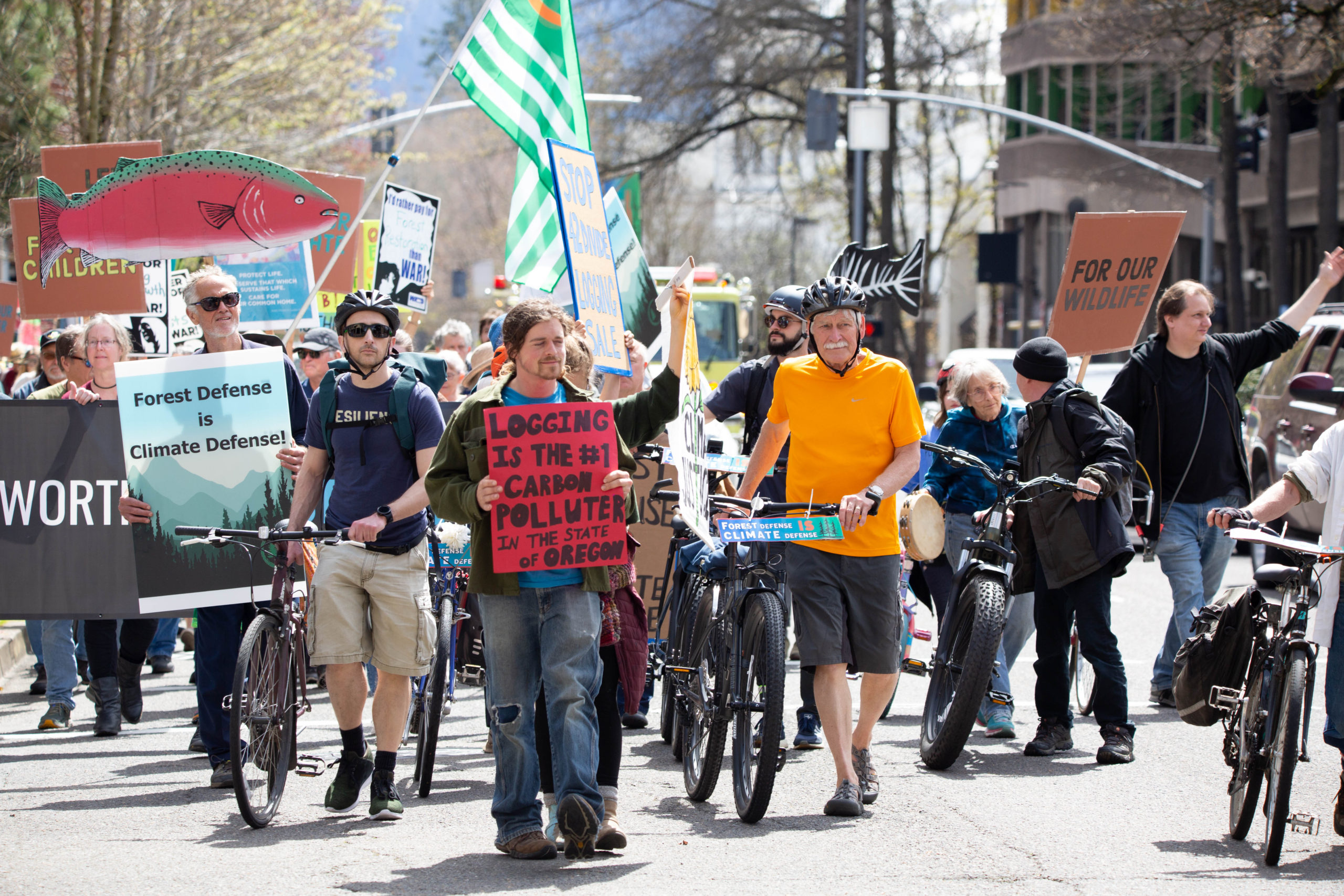On Earth Day, Apr 22, the city of Eugene, Oregon saw a show of solidarity as hundreds of people gathered to rally for the protection of mature and old-growth forests.
Attendees advocated for lasting protections for federal forests and to put pressure on President Biden to fulfill his promise(s) related to environmental protection.

Despite the one-year anniversary of President Biden’s executive order to protect these forests, nearly 370,000 acres of mature and old-growth forests across the U.S. are still at risk of logging.
The rally — organized by Forrest Web, Cascadia Wildlands, Oregon Wild, KS Wild, Coast Range Association, Climate Justice League and 350 Eugene — aimed to raise awareness about the need to protect the environment and hold government officials accountable for their actions.

On Earth Day last year, President Biden signed Executive Order 14072, which aims to conserve at least 30% of all federal lands and waters by 2030, with a particular focus on protecting forests, grasslands and wetlands. This order is part of the Biden Administration’s broader efforts to address the climate crisis and build a more sustainable and equitable future, which includes ending forest loss and restoring 200 million hectares of forests by 2030.
The executive order also allocates funds to support sustainable forest management and community-led initiatives to restore forests and prevent wildfires. Additionally, financial aid is provided for conservation projects. Furthermore, a National Climate Task Force was created to oversee efforts to conserve and restore forests, and a Civilian Climate Corps was introduced to engage young people and others in conservation work.

The forests of Western Oregon are among the most carbon-dense forests around the world.
The high carbon density of Western Oregon’s forests is crucial in mitigating climate change by enabling them to absorb large amounts of carbon from the atmosphere and store it in their organic matter, this process is called carbon sequestration.
However, human activities such as logging have disrupted the natural carbon cycle and contributed to significant amounts of carbon released into the atmosphere, potentially quickening to global warming. The disruption of this cycle can take centuries to be corrected. Forest fires only account for 4% of Oregon’s total carbon emissions and logging accounts for roughly 35%.




